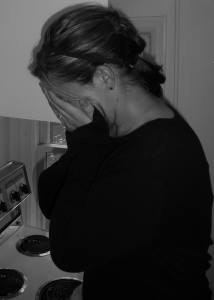 If you have been watching or listening to the news, you may be aware of the recent string of suicides that have happened in Oxford County. Many individuals in the community feel as though there are currently not enough adequate resources to help those suffering from mental health concerns. To take it a step further, there is also not a lot of resources available for those who are living with or care for individuals suffering from a mental illness. It is the hoped that this article would provide you with more information as to how to best support individuals struggling with mental illness as well as support yourself through these times. Though this article is focused on depression and sadness, much of this information can be transferred to support for those suffering from other mental health illnesses such as anxiety.
If you have been watching or listening to the news, you may be aware of the recent string of suicides that have happened in Oxford County. Many individuals in the community feel as though there are currently not enough adequate resources to help those suffering from mental health concerns. To take it a step further, there is also not a lot of resources available for those who are living with or care for individuals suffering from a mental illness. It is the hoped that this article would provide you with more information as to how to best support individuals struggling with mental illness as well as support yourself through these times. Though this article is focused on depression and sadness, much of this information can be transferred to support for those suffering from other mental health illnesses such as anxiety.
Signs and Symptoms of Depression
To provide the best possible support, it is important to be able to recognize what depression may look like. That being said, depression can look very different depending on each individual. Provided below are some possibly signs and symptom that you may witness.
- Sadness
- Feelings of guilt
- Anger
- Anxiety
- Nervousness
- Restlessness
- Increased or lack of sleep
- Increased or lack of appetite
- Feelings of hopelessness
- Lack of concentration
- Irritability
- Fatigue
- Decreased happiness or pleasure from things that used to be pleasurable
- Isolation from others
- Self – harm
How you can Help a Friend or Loved One
The following list was adapted from the author as well as http://www.helpguide.org/articles/depression/helping-a-depressed-person.htm. For more information, please contact CMHA or the website provided above.
- Listen: One of the best things you can do for someone who may be suffering from a mental illness or mental health concern is to offer a space for them to be heard. Feeling heard can provide a great relief and often the support one needs. You do not have to fix the problem and often times you can’t. However, providing space for someone to vent can be powerful.
- Support: Offer your support by letting them know you are there for them and letting them know that you are there to help if they need it. It is important to set boundaries in this area so that your morals are not compromised and so your health is not put into jeopardy. Support can also look like supporting a loved one through treatment and various treatment options. Checking in with them and seeing how their treatment is going can allow them to know you are still there and support their progress. Support can also look like praying with an individual or even going to appointments with them if they wish. Remind the loved one or friend that you love them and show them that you care in the ways that they will be receptive to.
- Encourage: Encourage your friend or loved one to seek help. If they are struggling with their mental health, it is important that they get proper care and attention. Encourage them that they are not alone and that resources are available for them to get help. If they do mention consideration over ending their life, do not let this go unnoticed and get help immediately.
How to Help Yourself
While helping others, it is important to understand your own limitations and set necessary boundaries to protect yourself. At the end of the day, you need to be reminded that it is not your responsibility to solve the problem. You are not a trained health care professional, and ultimately leave it to them. The best you can do is provide support within your own limits. It is also important to make sure that you are caring for your own health care needs and managing stress as well as you can. If you need help, do not be afraid to ask for it and seek help.
Have you benefited from reading this blog? Know someone that would benefit as well? Share, Like, Comment, or Tweet this article, and let me know what you think.
Some of the information provided above may not be appropriate for everyone, please consult with your doctor before trying any of the above. If you are interested in Naturopathic Medicine and wanting a different approach to your health care needs, contact Dr. Elisha Cook ND by calling 519-537-7058 and book your appointment today!

